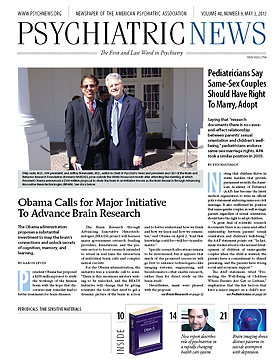FDA Approves Monthly Aripiprazole Injection For Schizophrenia
Otsuka Pharmaceutical and Lundbeck announced February 28 the FDA approval of Abilify Maintena, an extended-release injectable suspension of aripiprazole, as an intramuscular depot formulation indicated for the treatment of schizophrenia.
The product is the first dopamine D2 partial agonist approved as a once-monthly injection. Efficacy was demonstrated in a 52-week, placebo-controlled, double-blind, randomized-withdrawal, phase 3 maintenance trial in patients with schizophrenia. The time to relapse was the primary endpoint.
In a press release announcing the approval, Otsuka and Lundbeck noted that elderly patients with dementia-related psychosis treated with antipsychotic drugs are at increased risk of death, and this product is not approved for the treatment of patients with dementia-related psychosis.
BioLineRx Antipsychotic Misses Endpoint
BioLineRx announced March 20 that results from a preplanned interim analysis of the phase 2/3 CLARITY trial of BL-1020, an orally available GABA-enhanced antipsychotic for the treatment of schizophrenia, indicate that the trial would not meet the prespecified primary efficacy endpoint. After conferring with the study’s independent Data Monitoring Committee, the company has decided to discontinue the CLARITY study. No additional patients will be enrolled. The interim analysis included data on 230 subjects, of whom 168 were evaluable for analysis on the primary (six-week) cognitive endpoint. The analysis indicated no efficacy of BL-1020 when compared with risperidone relative to the cognitive primary and secondary (12-week and 24-week) endpoints. The company said it intends to perform a complete analysis of the unblinded study data on all patients enrolled to date to ascertain whether there may be future potential for the product.
FDA Allows Changes To Nicotine Replacement Therapy Product Labels
The Food and Drug Administration (FDA) announced April 1 that it has reviewed research on the safety of nicotine replacement therapy products sold over the counter and has decided that some warnings and limitations specified in the directions for use on the labels of these products are no longer necessary to ensure that they are used safely and effectively for smoking cessation.
The label changes that the FDA is allowing reflect that although any nicotine-containing product is potentially addictive, decades of research and use have shown that nicotine replacement therapy products sold over the counter do not appear to have significant potential for abuse or dependence.
The changes being recommended include a removal of the warning that consumers should not use a nicotine replacement therapy product if they are still smoking, chewing tobacco, or using snuff or any other product that contains nicotine, including another nicotine replacement therapy product.
“The agency heard from several public-health groups that the labeling for over-the-counter nicotine replacement products may stop consumers who are trying to quit smoking from using them,” said FDA Commissioner Margaret Hamburg, M.D. “FDA hopes the recommended changes will allow more people to use these products effectively for smoking cessation and that tobacco dependence will decline in this country.” The agency cautioned that labeling changes may not occur immediately and that product users should still read the packaging and labeling of any nicotine replacement therapy product they select and consult with their health care professional if they have questions.
Lundbeck Announces Positive Results From Study of Drug for MDD
On April 8, Lundbeck announced positive results for the REVIVE study, a 12-week double-blind randomized study of Brintellix (vortioxetine) versus agomelatine in adults with major depressive disorder (MDD) who changed antidepressant treatment after an inadequate response to SSRI or SNRI treatment.
The study’s objective was to compare the efficacy and tolerability of flexible-dose treatment with Brintellix (10-20mg/day) with those of agomelatine (25-50 mg/day). The study was conducted in Europe, and agomelatine was chosen as a comparator because of its different mode of action from conventional SSRI/SNRI therapies. The primary efficacy endpoint was change from baseline to week 8 in the Montgomery Asberg Depression Scale (MADRS) total score. Secondary endpoints included assessments of anxiety symptoms, global clinical judgment, and overall functioning.
On the primary efficacy endpoint, Brintellix was statistically significantly superior to agomelatine by 2.2 MADRS points. Significant differences in favor of Brintellix were also found for all other measures from week 4 onwards. Brintellix was well tolerated, with fewer patient withdrawals in the Brintellix group vs. agomelatine.
Lundbeck said it plans to present further efficacy and safety data from its clinical program at the APA annual meeting in San Francisco this month. ■
